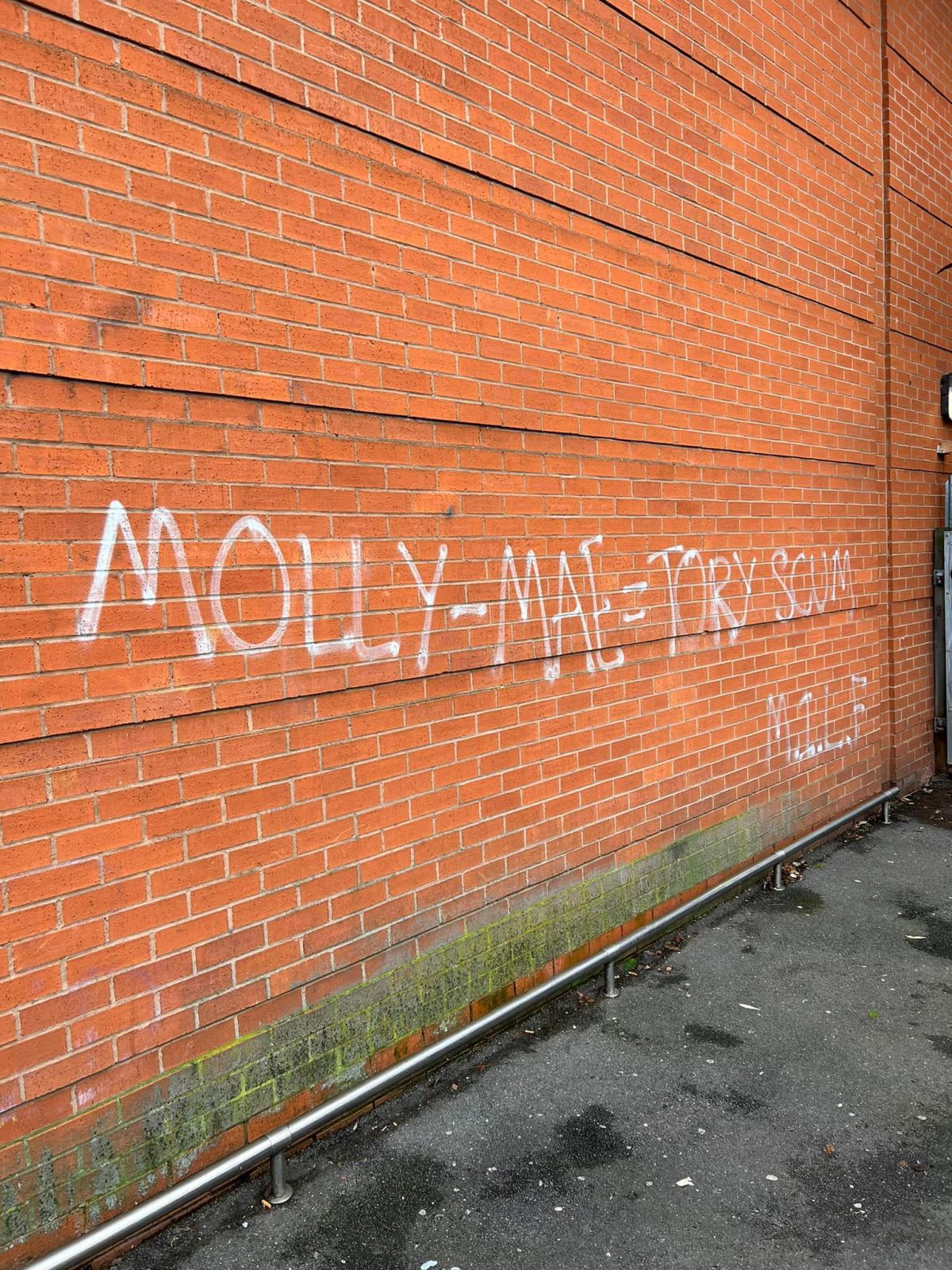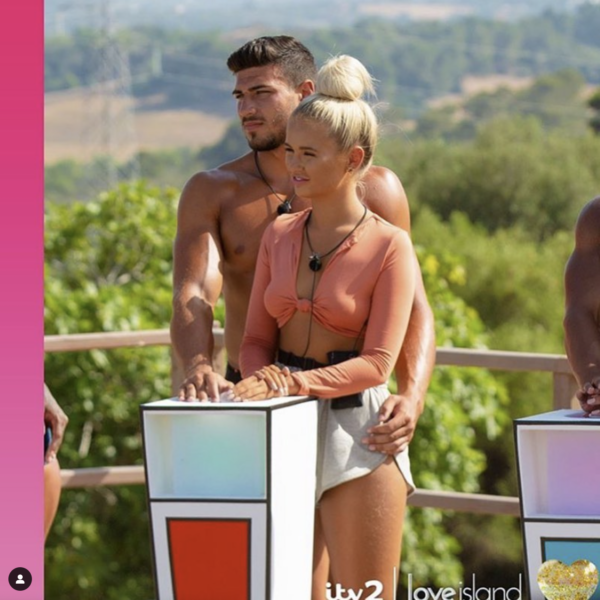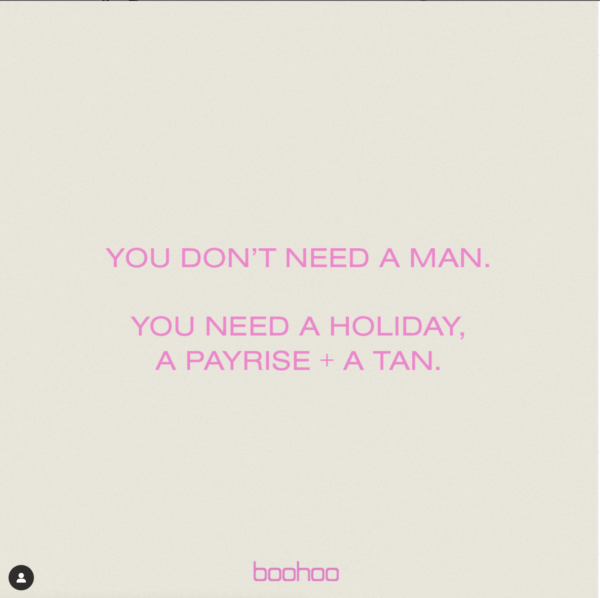Molly Mae-Be the downfall of the Girlboss
By Gemma Brown

Pop quiz!
“You can’t just be happy with where you are … there’s always more to be achieved” is a quote by which #girlboss – Margaret Thatcher or Molly-Mae Hague?
That’s right! Our favourite neoliberal icon Molly-Mae came under fire at the start of the year; comments she made owing her fame and success to simply working hard went viral.
“When I’ve spoken about that before in the past I have been slammed a little bit with people saying… you’ve not grown up in poverty, you’ve not grown up with, you know, major money struggles, so for you to sit there and say that we all have the same 24 hours in a day, it’s not correct”, she said on Steven Bartlett’s The Diary of a CEO podcast, “But technically what I’m saying is correct. We do”.
“It just depends to what lengths you wanna go to get where you wanna be in the future. And I’ll go to any length, like, I’ve worked my absolute arse off to get where I am now”.

This claim by the multi-millionaire influencer unsurprisingly evoked backlash on social media. Twitter users mocked her by calling her “Molly-Mae Thatcher”, “Theresa Mae” and “Fiat 500 Führer”. One disparaging comment read, “if you’re homeless just buy a house”. Her suggestion that people are poor because they don’t “go to any length” or work as hard as she does, led to “Molly-Mae = Tory Scum” being written on the side of Sainsbury’s Fallowfield.
While Molly-Mae may have worked her “absolute arse off”, her comments are simply representative of the illusion of meritocracy in a society established on social inequality. Dismissing her privileges of being conventionally attractive, white and middle-class – as well as the boost of appearing on one of the most famous reality TV shows in the world – she implies that the answer to escaping poverty is simply to work harder.
In reluctant defence of Molly-Mae, her comments stemmed from the common phrase that everyone has the same 24 hours in a day as Beyonce. Her claim that “if you want something enough you can achieve it”, isn’t much worse than inspirational quotes such as “she believed she could so she did” plastered on notebooks and t-shirts. The likes of which are peddled to the public for profit.
While her comments are ignorant, they appear to be a misguided attempt at motivation. She is undoubtedly one of the most successful Love Island contestants since the show began. She has even managed what other reality stars have been unable to achieve – to avoid fading into obscurity. She didn’t accept any old brand deal or #ad, but collaborated with companies that would fit her brand and form long-term alliances with her.

Her success became the blueprint for young women wanting a successful career in social media, showcasing how seemingly ordinary people can be elevated into fame and fortune in a short space of time. While many high-earning, high-exposure careers are built on nepotism, wealthy backgrounds and private education, influencing is far less exclusive and can be attempted by anyone with an internet connection and a half-decent personality.
Yet it is here that the pointy-nailed, pink-power-suit-wearing influencer becomes an extension of the ‘girlboss’. Under the guise of female empowerment and inspirational financial success, the girlboss is a symbol of brutally competitive individualism and vicious exploitation utilised to maintain wealth.
Who can forget our socialist queen Zoella! After gaining millions of followers by humbly reviewing Primark clothes and Superdrug makeup, she turned to selling novels written by ghostwriters and flogging advent calendars containing paper clips and stickers for £50 a pop.
As PLT posts neon-pink empowering quotes on women’s self-care and mental health, they offer appalling wages in an industry where 80% of workers worldwide are women. “Your only limit is you 💜⚡” and “You don’t need a man. You need a holiday, a payrise + a tan” are claims made by the Boohoo Instagram account, yet apparently they do not consider the £3.50 hourly wage of their garment workers in Leicester a ‘limit’ ❤️✨ .


Whilst, for obvious reasons, bullying and harrassing Molly-Mae is unacceptable, I’m glad her comments were called out by so many. It’s not like she’s really taken any notice – after making a half-hearted, non-apology on Instagram, she went straight back to posting selfies of herself in designer clothing whilst simultaneously advertising a full-time job for her company that pays just £16,845 a year.
Yet we can hope that the backlash has cast doubts over the supposedly empowering, ‘girlboss’ era, as well as demonstrating that such criticism is not an attempt to undermine feminist movements but rather to expose the injustices of capitalism. It also leaves me optimistic for the diminishment of the influencer, who’s ignorance simply reflects a nation’s ignorance to social inequality and its consequences.
Or maybe Molly-Mae will just be happy that I’ve written an article all about her using several of my ever-so-precious 24 hours.







